MercoPress. South Atlantic News Agency
Tag: squid
-
Friday, May 27th 2011 - 08:20 UTC
Argentina bans hake and squid fisheries; Auditing office confirms over-fishing
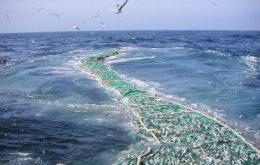
Argentina suspended the hake season in the south of Patagonia and banned squid operations following on scientific reports of over fishing that have considerably limited catches of both species said industry sources following an official audit which questions government fisheries controls.
-
Saturday, May 21st 2011 - 03:19 UTC
Argentina closes squid fisheries until June 18 for conservation
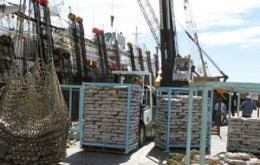
Argentina’s Federal Fisheries Council, CFP, ordered the closure of the squid (Illex argentinus) fishery to the south and north of parallel 44° as from 21 May until June 18 because of a low resource biomass.
-
Tuesday, April 26th 2011 - 01:25 UTC
Argentine seafood exports down in volume but prices much stronger
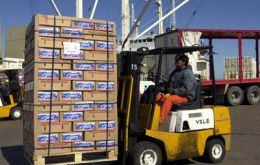
Argentina’s seafood exports in the first quarter of 2011 totalled 78,493 tons valued at 218 million US dollars which represents a 14.9% in volume (92.220 tons) and 3.3% in value (211 million USD), according to the latest release from the National Service for Food Health and Quality, Senada.
-
Tuesday, April 26th 2011 - 00:52 UTC
Argentine jigger fleet discouraged, but statistics show 50% increase in squid catches
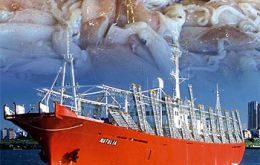
This year’s squid (Illex argentinus) season took off January first with encouraging catches in Argentina but then went sour with steady declines in volume according to the industry. However official figures show that total registered catches were up over 50%.
-
Friday, April 1st 2011 - 01:22 UTC
Argentina’s high expectations for the squid season are rapidly fading

Encouraging expectations for the Illex argentinus squid season appear to be fading in Argentina. Following a start with good catches and high expectations, the average daily output of squid is now only around five tons in the area between parallels 44º and 46º South Atlantic.
-
Monday, March 28th 2011 - 04:36 UTC
Falklands’ seafood total success in “Taste of Britain” exhibition in Prague

Falkland Islands squid, sea-bass and king-clip were among the mouth watering morsels served to guests and buyers at a prestigious exhibition in the Czech capital of Prague last month.
-
Friday, March 4th 2011 - 22:23 UTC
Argentina fish landings decline by 30% in first two months of 2011
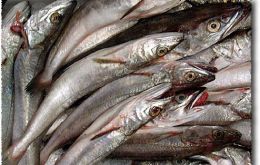
Argentine fish landings during the first two months of 2011 have dropped 30.4% compared to a year ago totalling 50.749 tons against 72.819 in 2010. Of the total volume, 40.632 tons were fisheries, 5.995 tons, molluscs and 4.121 tons crustaceans, according to the country’s Under Secretariat for Fisheries and Aquaculture.
-
Tuesday, February 15th 2011 - 18:57 UTC
Jiggers queue early for the Falkland Islands Illex squid licenses
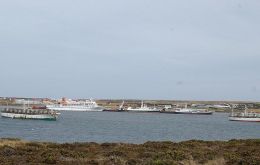
MORE than thirty, mainly Taiwanese, jiggers crowded into Stanley Harbour early this week prior to the beginning of the Falkland Islands Illex fishery season.
-
Monday, February 14th 2011 - 20:41 UTC
Argentine jiggers pleased with current squid season catch levels
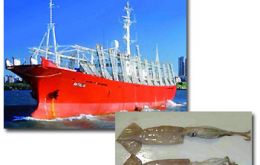
Argentina’s catches of squid (Illex argentinus) are averaging 20 tons per day and there’s no activity outside the country’s Exclusive Economic Zone (EEZ), according to the first landing reports.
-
Monday, January 10th 2011 - 06:23 UTC
Argentina: Uncertainty ahead of 2011 squid season
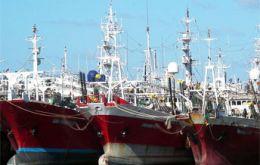
The limited presence of squid (Illex argentinus) at mile 201, outside the exclusive economic zone (EEZ) is of concern to the local squid jigger fleet, which fear that something similar might happen this year in national waters.
